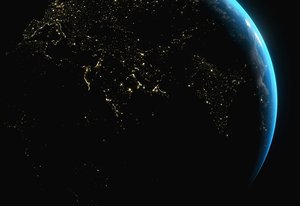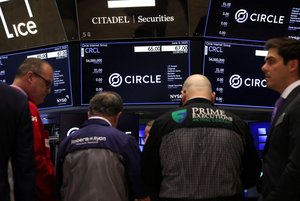Paul Samson
A strong case can be made that today we face an inflection point across the globe.
Bessma Momani
Demography...
Tracey Forrest
aging...
Nikolina Zivkovic
the world is getting old before it can get rich.
Tim Sargent
Change is going to be unprecedented.
Nikolina Zivkovic
Climate change...
Bessma Momani
technology is a big part of the conversation.
Nikolina Zivkovic
Technological change...
Tracey Forrest
can help provide solutions.
Tim Sargent
Who‘s going to be the largest economies?
Bessma Momani
Geopolitical order...
Tim Sargent
geopolitical order that‘s going to be very much in transition.
Paul Samson
Similar to what we saw in the early 1900s — when cars and electricity were rapidly emerging across the planet and geopolitical tensions were high — we are in a similar moment of change.
Tracey Forrest
AI, robotics, biotechnology and other emerging technologies such as quantum are poised to be as transformational as technologies were in the past. Successful socio-economic harnessing of a wave of emerging technologies will determine which countries
rise or fall relative to their peers.
Bessma Momani
The Global Economic Scenarios project is really about trying to determine what‘s the future trajectory of the global economic order architecture. How will it look?
Tim Sargent
We take historical data, demographic data, economic data, fiscal data, and try and project out what the world economy is going to look like 10, 20 years from now. We want to provide policymakers with a sense of what the world is going to look like so that they can make the right decisions, and as well for individual governments to be able to navigate the new reality that we see unfolding.
Paul Samson
Economic productivity has intense competition between countries. There are huge inequalities and there‘s backlash against globalization.
Bessma Momani
We are seeing a lot of the Global South want to be more active in making the rules, from standards, from determining the kind of regulations that govern everything from artificial intelligence to quantum computing. We‘re just going to see a more active Global South in the geopolitical order.
Nikolina Zivkovic
In our analysis of economic growth, we find that there’s no immediate challenge to the dominance of the US.
Paul Samson
However, at the same time, it is clearly a multipolar world. And that multipolar world requires a new or renewed set of institutions and an international system that functions around this new reality. It could take many forms. It could be a reformed or renewed set of institutions. It could be something quite radical, like a transformation of the system. It could also be blocs forming around certain countries in different configurations. Or it could be something that is more of a disorderly system. All of those are possible right now, and things are changing very quickly.
Nikolina Zivkovic
Not only does this analysis provide data-driven insight into the medium-term conditions for every country and region, but it also looks at the implications for the future of global economic order by way of governance and cooperation.
Bessma Momani
All good scenario planning needs to really factor in perhaps the most unlikely but high-impact-type scenario, which really is that “black swan” event.
Nikolina Zivkovic
Things like the next pandemic, the next major climate event or major conflict will completely up end any of these economic projections or global order scenarios.
Tim Sargent
I think one of the things that we‘re doing differently with the CIGI work is we‘re connecting the economic side with the governance side. We‘re trying to say, okay, these are our economic projections, fiscal projections, demographic projections. But what does that mean for governance? What does that mean for international governance? What does that mean for how governments will interact with each other? What are the different scenarios for global governance? Will we see a much more fragmented order? Will we see a revival of institutions? And these will be affected by what the world looks like economically, fiscally and demographically.


